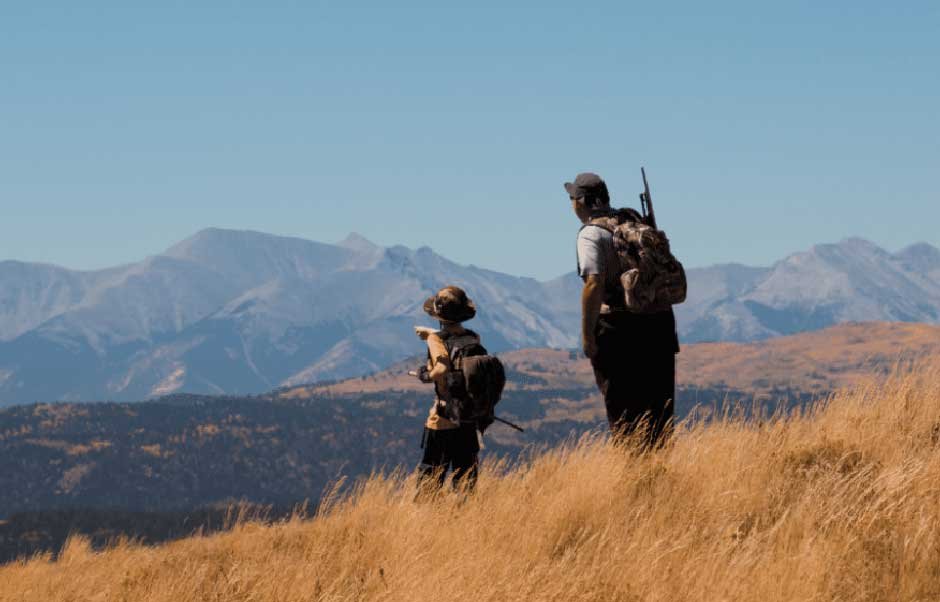Hunting can be a thrilling and rewarding experience, whether you’re a seasoned pro or a first-time adventurer. However, to ensure a successful and safe outing, it’s essential to come well-prepared. The right gear can make all the difference in your comfort, effectiveness, and overall enjoyment in the great outdoors. Here’s a list of the top ten hunting essentials you should never leave home without.
1. Quality Firearm or Bow
The most critical piece of hunting equipment is, of course, your firearm or bow. Choose a weapon that you’re comfortable with and that suits the type of game you’re pursuing. For rifle hunting, ensure it is well-maintained and sighted in for accuracy. If you’re opting for bow hunting, make sure your bow is properly tuned, and don’t forget your arrows! Familiarize yourself with your weapon and practice shooting before heading out to improve your chances of a successful hunt.
2. Ammunition or Arrows
Once you have your weapon, don’t forget the ammunition or arrows! Bring enough to cover your hunting needs, including a few extras in case of missed shots. Always carry the appropriate caliber or type for your specific firearm or bow. It’s also wise to check local regulations for restrictions on ammunition type for specific game.
3. Hunting License and Permits
Before you even step foot in the woods, ensure you have all the necessary licenses and permits. These documents not only keep you legal but also support wildlife conservation efforts. Check the regulations in the area where you’ll be hunting, as they can vary significantly by state and region. Keep your license in a waterproof pouch to protect it from the elements.
4. Clothing for the Elements
Dress appropriately for the weather and terrain. Layering is key—choose moisture-wicking base layers, insulating mid-layers, and waterproof outer layers to stay dry and comfortable. Don’t forget essential accessories like gloves, hats, and neck gaiters. Also, opt for camouflage patterns to help you blend into your surroundings. Remember, comfort is crucial; the last thing you want is to be distracted by the cold or wet conditions when you’re trying to focus on your hunt.
5. Comfortable Boots
A good pair of hunting boots is essential. Look for waterproof and breathable options with good ankle support. Comfortable boots will help you navigate through rough terrain and keep your feet dry, allowing you to concentrate on the hunt rather than discomfort. Don’t forget to break them in before your trip to avoid blisters and sore feet.
6. Hunting Backpack
A sturdy hunting backpack is invaluable for carrying all your gear. Look for one that offers ample storage, multiple compartments for organization, and padded shoulder straps for comfort. Consider options with hydration systems or the ability to carry a water bottle, as staying hydrated is vital during long hunts.
7. Navigation Tools
Getting lost is a risk in the wilderness, so having reliable navigation tools is essential. Carry a compass, GPS device, or a detailed map of the area where you’ll be hunting. Familiarize yourself with the terrain before your trip, and always let someone know your hunting route and expected return time.
8. First Aid Kit
Accidents can happen, so it’s best to be prepared with a first aid kit. Your kit should include bandages, antiseptic wipes, pain relievers, and any personal medications you may need. Consider adding items like insect repellent and sunscreen, which can protect against bites and sunburn while you’re out in the field.
9. Field Dressing Gear
Once you make a successful shot, you’ll need to process your game. Pack a field dressing kit that includes a sharp hunting knife, gutting gloves, and game bags. Ensure your hunting knife is sharp and easy to handle for efficient dressing. A small cutting board can also be helpful. Learning how to field dress your game properly can save you time and ensure the meat stays fresh.
10. Safety Gear
Safety should always be a priority while hunting. Carry a whistle or a signaling device in case of emergencies, and consider wearing a safety harness if you’ll be using a tree stand. High-visibility clothing can also help prevent accidents. Ensure your hunting partners are aware of your location, and establish a system for communication throughout the hunt.
In Conclusion
Preparing for a hunting trip involves more than just grabbing your weapon and heading out into the woods. By ensuring you have these top ten essentials, you can enjoy a safer, more productive, and enjoyable hunting experience. Take the time to gather and check your gear before you leave home, and you’ll be ready to tackle the wilderness with confidence. Happy hunting!



